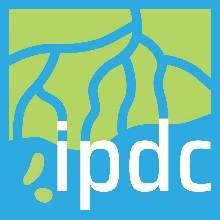The Dutch Caribbean islands face significant challenges related to water management, coastal protection, and climate adaptation. Rising sea levels, extreme weather events such as heat and drought, and changing rainfall patterns threaten both ecosystems and communities. Recognising these shared challenges, the islands are members of the IPDC.
IPDC membership
The Dutch Caribbean have been IPDC members since its official launch at the UN 2023 Water Conference. Prior to the launch, representatives from the islands met with the IPDC in December 2022. This meeting laid the foundation for a structured and collaborative approach to tackling climate resilience in the region.
The Dutch Caribbean delegations were also active participants in the IPDC Conference 2024, working together to identify key gaps and opportunities in addressing climate risks.
The outcomes of these discussions were compiled into the 2024 IPDC Report, which includes dedicated sections for each Dutch Caribbean island. Building on these insights, efforts are now underway to strengthen local knowledge databases through the development of Climate Impact Atlases. The first of these, Curaçao’s KlimaKòrsou, is already live.
In addition, a series of webinars is being organised to facilitate knowledge-sharing among stakeholders.
2025 priorities
IPDC support for the Dutch Caribbean is focused on assisting the islands in developing their climate adaptation plans. The IPDC’s 2025 priorities reflect a joint effort with the Dutch Caribbean islands to deliver targeted support that address gaps in the development of their climate adaptation plans.
Coordination
A key aspect of the support is effective coordination. Ministries responsible for climate adaptation on each island have appointed a Focal Point, who often has a background in the national government or an independent advisory body. This allows them to play a central role in connecting local project partners and keeping ministers informed.
Focal Points work closely with the IPDC Dutch Caribbean support coordinators co-designing support activities that address gaps in National Adaptation Strategies and Climate Adaptation Plans. This ensures that the IPDC’s expertise and resources are directed where they are needed most.
Planning
To effectively structure support, the IPDC introduced a Menu Card in late 2024. This tool helps identify support needs before launching specific projects. While many islands already have ongoing adaptation initiatives, a coordinated approach can strengthen these efforts. The Menu Card is flexible, allowing islands to integrate existing projects, share knowledge, and track progress over time.
The planning timeline moving forward:
- Early 2025 –Priority activities for IPDC support have been identified based on input from the Focal Points, and the first support activities are being initiated.
- Throughout 2025 – Ongoing refinement, reflection, and knowledge exchange, ensuring best practices are shared across islands.
- Late 2025 and into 2026 – Progressing toward the completion of IPDC support to help islands finalize their adaptation plans in 2026 where needed.
Support activities
The IPDC support for the Dutch Caribbean in 2025 consists of both overarching activities and island-specific support.
Overarching Support Activities:
- Inventory of Potential Adaptation Options – A collaborative effort by the universities of Curaçao, Aruba, and Sint Maarten, along with VU-IVM, Wageningen University, Deltares, and CAS, to develop a comprehensive list of adaptation options that can feed into adaptation plans across the Dutch Caribbean.
- Climate Scenarios and Digitisation – Led by the Meteorological Departments of Curaçao, Aruba, and Sint Maarten, and The Royal Netherlands Meteorological Institute (KNMI), this initiative focuses on digitising and co-developing climate scenarios to inform decision-making.
These overarching activities provide a knowledge foundation for island-specific adaptation support towards National Adaptation Strategies and Climate Adaptation Plans..
Strengthening Regional Collaboration
The success of IPDC in the Dutch Caribbean depends on strong partnerships between governments, research institutions, businesses, and local communities. By aligning efforts, we can develop long-term solutions that protect the islands and their ecosystems from climate risks.
Resource and contact
For more information on the IPDC’s work in the Dutch Caribbean, check the 2025 Dutch Caribbean updates, or drop a line to Timo Kelder.
